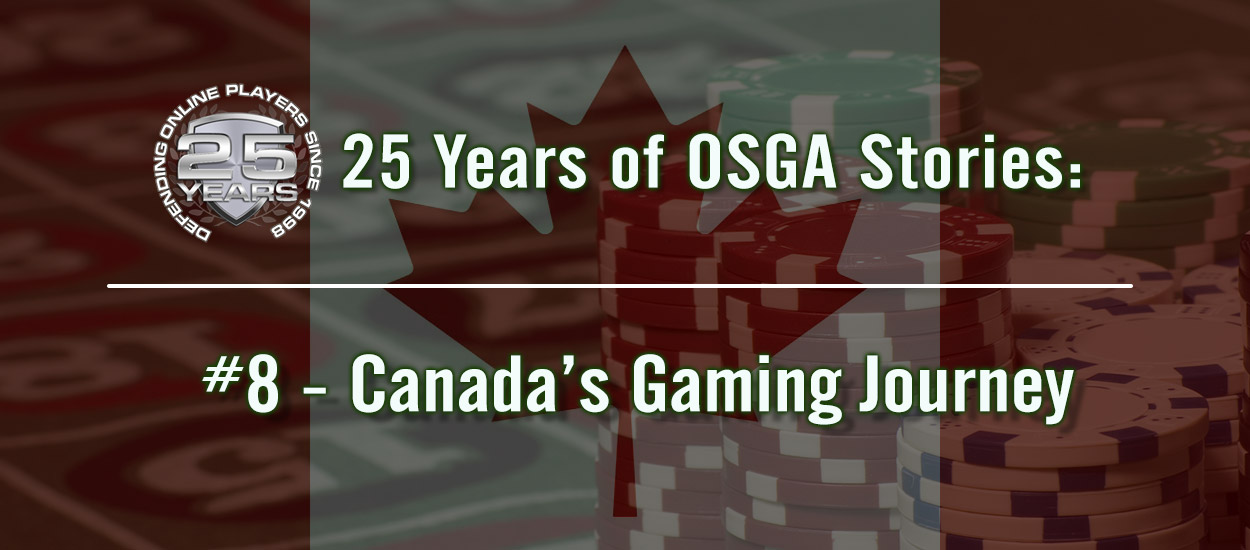OSGA has been covering Canadian gaming for a quarter century
Canada has had an interesting history with gambling. Until the 1970s legal gambling in Canada was limited to horse racing and some charitable activities, like bingo. In 1969 Canada amended the criminal code to allow for lotteries, and the first federal lottery was created in 1974 to help pay for the 1976 Montreal Olympics. It continued after the Olympics to help pay the Olympics deficit until 1979 when the federal government got out of the lottery business and turned it over to the provinces who cried that gambling in Canada was their purview.
The 80s: Sports Betting
In 1983 the criminal code was amended after the Athletic Contests and Events Pool Act passed which allowed provinces to expand lottery operations to include sports betting and some casino type products, like Video Lottery Terminals (VLTs), which became very popular in Eastern Canada. Consequently, provinces set up sports lotteries, which required players to select at least three games (since the criminal code still mandated that any legal sports betting pools and contests contain multiple selections), and the odds were consistent with other lotteries, meaning that the edge for the lotteries was about 35%. The first offering was baseball that had a line of 1.70 (or -143 on either side) so with an 86-cent hold that had to be parlayed with three games it was destined for failure. The lottery was suspended by the provinces it operated after one year, but was reintroduced under the name Sport Select with the main game called Proline.
The Proline odds were still lousy, but the offering of other games, including hockey, NFL football, CFL and soccer became more popular. The lotteries also offered options besides parlays of money lines, including point spreads, over/under cards and betting pools. Sadly, each betting option was a different ticket and could not be combined.  Nevertheless, the terrible odds and the proliferation of offshore phone sportsbooks, like Bowman’s International from England and WWTS from Antigua, in the early 1990s, and more significantly online sportsbooks, which became very popular around 1997, meant that larger and more sharp bettors shunned the lottery and bet offshore instead. Aside from the requirement to bet three game parlays (which were also mostly 3 way lines that included a tie option for hockey games that went to overtime, football games that were decided by 3 points or less and basketball games that were decided by 5 points or less), NBA basketball was excluded from Proline in British Columbia and Ontario in 1994, after the NBA threatened not to give Toronto and Vancouver teams unless NBA was removed from the sports lottery. British Columbia voluntarily removed NBA games, but Ontario only removed it after the Raptors agreed to pay the Ontario Lottery Corporation $5 million a year for the first 5 years of operation and $1 million a year after for perceived lost revenue. The Raptors only stopped paying this after Adam Silver promoted sports betting, at which point it was added back as a betting option on the sports lottery.
Nevertheless, the terrible odds and the proliferation of offshore phone sportsbooks, like Bowman’s International from England and WWTS from Antigua, in the early 1990s, and more significantly online sportsbooks, which became very popular around 1997, meant that larger and more sharp bettors shunned the lottery and bet offshore instead. Aside from the requirement to bet three game parlays (which were also mostly 3 way lines that included a tie option for hockey games that went to overtime, football games that were decided by 3 points or less and basketball games that were decided by 5 points or less), NBA basketball was excluded from Proline in British Columbia and Ontario in 1994, after the NBA threatened not to give Toronto and Vancouver teams unless NBA was removed from the sports lottery. British Columbia voluntarily removed NBA games, but Ontario only removed it after the Raptors agreed to pay the Ontario Lottery Corporation $5 million a year for the first 5 years of operation and $1 million a year after for perceived lost revenue. The Raptors only stopped paying this after Adam Silver promoted sports betting, at which point it was added back as a betting option on the sports lottery.
Land-based Casinos
Around the same time that the sports lottery became popular, so too were physical casinos. Many communities offered small city-operated casinos, allowed under the 1983 amendment, but large resort casinos never began until the mid-1990s. Upon the creation of the Ontario Lottery Commission (OLC), the province of Ontario set up a hybrid model for casino operations. 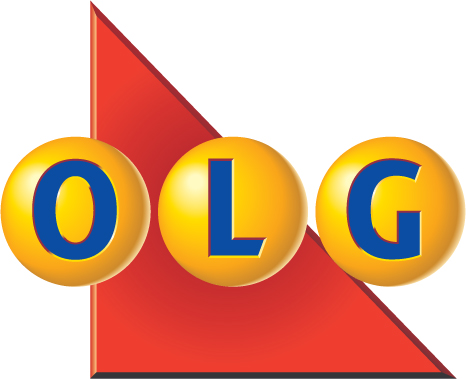 Under this arrangement, casinos are owned and controlled by the Ontario government, as is the requirement by the Canadian criminal code, however, daily operations are overseen by private sector operators acting as agents of government. The private sector also helps build the casinos and takes much of the revenue from the rooms and amenities as well as charging a fee to the government for the daily management of the casino.
Under this arrangement, casinos are owned and controlled by the Ontario government, as is the requirement by the Canadian criminal code, however, daily operations are overseen by private sector operators acting as agents of government. The private sector also helps build the casinos and takes much of the revenue from the rooms and amenities as well as charging a fee to the government for the daily management of the casino.
The first resort casino was built in Windsor in 1994 with Caesars chosen as the private operator to build and manage the casino. The second resort casino was in Rama, Ontario (a native community near Orillia, Ontario), with Penn National Gaming acting as the management. The land was actually owned until 2018 by the Canadian government, but in May of that year the land was turned over to the Chippewas of Rama First Nation. When that change took place, Penn National bowed out and Gateway Casinos was announced as the new operators of the facility. Gateway also took over the slots casino at nearby Georgian Downs raceway. The revenues that are derived from Casino Ramar are split between all first nations groups in Ontario. And the third resort casino built in Ontario was in Niagara Falls, Ontario, called Fallsview. It, along with Casino Niagara were always owned and operated by OLC and the casino helped Niagara Falls build up the new Fallsview tourist area, which prior to the casino was just unused land. In 2019 the oversight and daily operations for both Niagara Falls casinos was turned over to Mohegan Sun.
Single Game Sports Betting
Buoyed by this private-public partnership, the casinos decided to see if they could get some amendments to the criminal code to help them and used local politicians to help spur the efforts. With casinos being built in Detroit and Niagara Falls, New York, Casino Windsor and Casino Niagara asked for the ability to offer crap games at the casino to compete with their U.S. neighbors (dice games were banned in Canada under a 1922 amendment), and in 1998 that restriction was lifted with unanimous support in the House of Commons and Senate. The casinos also apparently asked for the ability to offer single game sports betting. They believed betting on individual games would give them a competitive advantage over U.S. casinos and hence would not only create new gambling opportunities for Canadians, but would also lure Americans to drive north to bet on their favorite sports, since at the time the only legal form of sports betting in the United States was in Nevada. Moreover, there was hope that single game sports betting would lure those who were betting offshore to start betting with legal casinos in Canada instead.
A private members bill was introduced by an NDP Member of Provincial Parliament (MPP) from Windsor which requested the criminal code to be amended to remove the line requiring multiple games for sports bets. It was passed with all party support in the House of Commons in 2012 and was sent to the Senate to sign. Unlike the United States, Canada’s Senate is an unelected set of patronage appointments by the ruling party at the time, and Senators stay on until they choose to leave. The Senate has always just rubber-stamped bills that pass in the House with full support, but unfortunately for sports bettors in Canada, the bill was sent to the Senate at a time when Senators were being scrutinized for an illegal spending scandal. The government at the time was so disgusted by Senate actions they even suggested eliminating the Senate, since it was seen by most Canadians as irrelevant. So, when this bill landed on the Senate desk, many Senators apparently felt it was a good opportunity to show their relevance by taking a stand against it. It is also notable that hockey great Ken Dryden was a Senator at the time and urged by the NHL not to sign it, and the NBA sent representatives asking for the Senate to kill the bill. 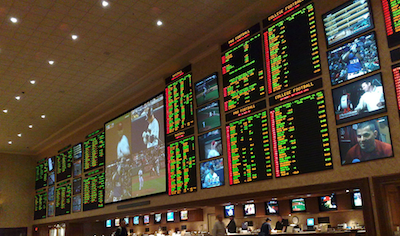 Instead of voting for or against it, they simply refused to sign it or send it back, so it stalled out in 2015 making the bill null and void. The official reason the Senate gave for not signing the bill was that there was never an official debate in the House on the bill. A new version of the bill was sent to the House of Commons in 2016 by a different Windsor MPP and this time the House voted against it under the new Liberal government headed by Justin Trudeau.
Instead of voting for or against it, they simply refused to sign it or send it back, so it stalled out in 2015 making the bill null and void. The official reason the Senate gave for not signing the bill was that there was never an official debate in the House on the bill. A new version of the bill was sent to the House of Commons in 2016 by a different Windsor MPP and this time the House voted against it under the new Liberal government headed by Justin Trudeau.
In 2017, the United States government repealed PASPA and instead of luring Americans to Canada to bet legally on sports as the two MPPs hoped would happen, governments found that many Canadians instead started travelling to New Jersey and Pennsylvania to bet on sports. In 2020, a new version of the same 2011 bill was transferred to Kevin Waugh, a member of the Federal Conservative Party from Saskatchewan, to introduce in the House and with the U.S. now offering legal sports betting and with the opposition by all the leagues including the NHL, NBA and MLB lifted, the House approved the bill overwhelmingly. The Senate signed the bill into law in November 2021 leading to the legalization of single game sports betting in Canada.
Ontario leaps online
The provinces all started offering betting on sports through the lotteries, but Ontario chose a different path. While sports betting was made available to the Ontario Lottery, the province also agreed to allow an open market for private businesses to offer online sports betting, online casinos and online poker in exchange for a $100,000 licensing fee per vertical and 20% of gross gambling revenues (GGR) paid to the province. 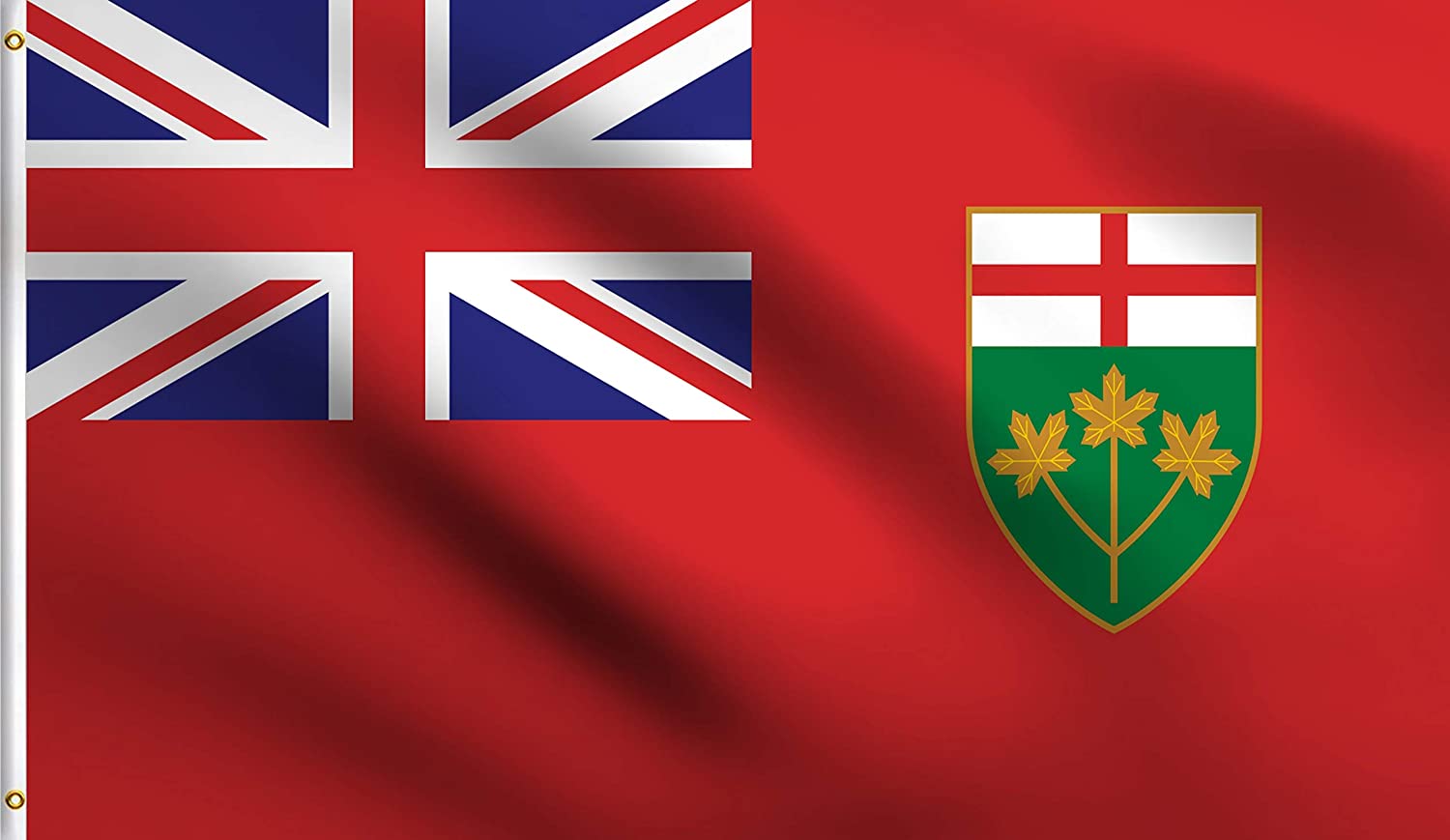 The Ontario lottery immediately offered sports betting as an addition to their online casino that had been operational since 2015, although they still kept Sport Select as a lottery option for those who wanted it. The province announced an April 4th, 2022 start date for new private websites and most of the big names immediately applied for a license, including FanDuel, BetMGM, BetCaesars, Bet365, PointsBet, BetRivers, 888, Unibet and a host of others. Most of the operators offered both casinos and sports betting, although some sites only offered casino wagering.
The Ontario lottery immediately offered sports betting as an addition to their online casino that had been operational since 2015, although they still kept Sport Select as a lottery option for those who wanted it. The province announced an April 4th, 2022 start date for new private websites and most of the big names immediately applied for a license, including FanDuel, BetMGM, BetCaesars, Bet365, PointsBet, BetRivers, 888, Unibet and a host of others. Most of the operators offered both casinos and sports betting, although some sites only offered casino wagering.
DraftKings was actually delayed by a month due to processing issues and that delay has left them in 5th place in Ontario, behind the lottery, Bet365, FanDuel and BetMGM. It’s notable that the lottery immediately launched single game online sports betting once the bill passed into law and they offered huge incentives to get players to join up. That head start has made it the biggest operation in Ontario in terms of users, but not in terms of revenue. To date there are 29 companies, operating 31 skins for sports betting, an additional 21 companies offering 38 skins for casino only gambling, one company offering bingo, in addition to casinos and five companies offering online poker. STX was recently granted a betting exchange license as well. It is expected that over time there will be a large consolidation of the sites since there is only so much money to go around, but to date only two companies discontinued operations in Canada – Coolbet owned by Coolbear in Scandinavia as well as Casino.com and Mansion Casino both owned and operated by Mansion in England.
Operating Oddities
As part of the license agreements, FanDuel and DraftKings were forced to give up fantasy sports in Ontario, although there are discussions underway to get it reintroduced should the province be willing to make some changes to the interprovincial requirements. Horse racing is not allowed as a sports offering, although Bet365 just worked out an agreement with Woodbine Entertainment whereby bettors can wager into the track pools via a tool on.bet365.ca website, which integrates with the HPIBet.com wagering system. OLC also did not implement a bad actor clause so they simply asked operators like Bet365, 888, PokerStars, Pinnacle, etc., who had Ontario customers betting at their offshore operations to shut those down and require Ontario residents to obtain an account at the new iGaming Ontario regulated sites. Companies operating from the Kahnawake Reserve outside of Montreal, with a somewhat controversial Kahnawake Gaming Commission license, were also allowed to apply and consequently Sports Interaction received a license to operate in Ontario. Other provinces still only allow sports betting with the provincial lotteries, although Alberta, British Columbia and Manitoba by all accounts are considering the Ontario model.
Resort Casinos
As part of a gambling modernization plan introduced by OLC in 2011, the province also announced plans to put in resort casinos in various cities. The big draw was a resort casino hotel to be built in the Greater Toronto area. The major resort casino, called a C1 casino was to be built either in the downtown corps, the western suburb of Mississauga or in the northern suburbs of Markham, Vaughan or Richmond Hill. Of those options, downtown was clearly the choice of all casino operators who saw dollar signs with the opportunity of creating a large resort casino in the fourth largest city in North America, while C2 was going to put a resort type casino at Woodbine Racetrack and C3 a smaller hotel and casino in Durham Region. The main differences between C1, C2 and C3 casinos aside from location was the size and number of slot machines allowed.
OLG asked for requests for bids from casino operators and MGM went all in pushing for a casino at the Exhibition Grounds, while Caesars, the Sands, and Oxford Properties made a push to get a casino built at the Convention Centre, which is located between the Scotiabank Centre and the Rogers Centre. MGM reportedly spent $10 million on their bid and even went so far as to put on a mock job fair to show the general public what type of jobs could be created with their vision. 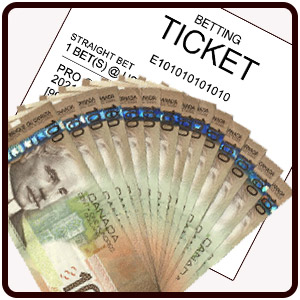 But, in the end, it was a moot point. The casino naysayers, including the majority of the Toronto Council, had no intention of ever approving any Toronto casino and OLG rules stated that it would not force a casino on any city that didn't want it. In the end, council voted overwhelmingly to reject a casino both downtown and at Woodbine racetrack. Mississauga and the other C1 cities also backed out saying they didn’t have the infrastructure for a large casino. Various reports said that MGM was so disgusted by the runaround and false promises by city officials that they vowed to never bid for a Toronto casino again.
But, in the end, it was a moot point. The casino naysayers, including the majority of the Toronto Council, had no intention of ever approving any Toronto casino and OLG rules stated that it would not force a casino on any city that didn't want it. In the end, council voted overwhelmingly to reject a casino both downtown and at Woodbine racetrack. Mississauga and the other C1 cities also backed out saying they didn’t have the infrastructure for a large casino. Various reports said that MGM was so disgusted by the runaround and false promises by city officials that they vowed to never bid for a Toronto casino again.
In 2018 the new Toronto council, which was far less extreme than the past council, signed a community benefits agreement allowing a resort casino to be built at Woodbine racetrack. A slots-only casino was already present at Woodbine and the agreement allowed it to be expanded to a full resort type casino, provided they agreed to allot 40% of the jobs to local residents. Great Canadian Gaming won the bid for that casino in partnership with Brookfield Business Partners LP, which also included a casino and hotel in Pickering, Ontario (an Eastern Toronto suburb) and rights to the Great Blue Heron Casino located in Port Perry, Ontario in the Mississaugas of Scugog Island First Nation. The casinos collectively employ more than 3,000 people and include over 4,800 slot machines and 160 table games. Great Canadian was also allowed to operate the slots-only casino at Ajax Downs quarter horse racetrack. The agreement gave Great Canadian and Brookfield exclusivity to casinos in the Toronto area for 22 years.
Since that agreement, a hotel was built at Great Blue Heron, a large casino and hotel has been put up in Pickering and a major resort casino and hotel with 440 rooms has been erected at Woodbine racetrack. The Pickering and Woodbine hotels were delayed from opening by more than a year due to the COVID-19 pandemic, but did open in 2021 and 2022 respectively. The biggest complaints about the casinos have been the incredibly high limits for table games, particularly at Woodbine and Pickering, the lack of parking on weekends, and the distance to downtown Toronto.
There were also many interests who were upset that Great Canadian got the bid after a huge money laundering scandal took place at a casino owned by GCG in Vancouver.  According to various reports, Red Rock Casino personnel allowed Chinese criminal enterprises to launder money by hiring people to walk into the casino with hockey bags full of $20 bill and convert them into gambling chips, play some of the chips, and then cash in the remaining chips for larger denominations as a payout. The funds went back to the criminal organization, which was disguised as a money lending operation, who in turn deposited the now ‘cleaned money’ into a Chinese bank account. Great Canadian denied any wrongdoing and said they only followed the rules of fintrac and it wasn’t their place to ask customers how they obtained their funds. In the end Great Canadian was cleared, but it left many analysts wondering whether OLC did their due diligence selecting Great Canadian as the operators.
According to various reports, Red Rock Casino personnel allowed Chinese criminal enterprises to launder money by hiring people to walk into the casino with hockey bags full of $20 bill and convert them into gambling chips, play some of the chips, and then cash in the remaining chips for larger denominations as a payout. The funds went back to the criminal organization, which was disguised as a money lending operation, who in turn deposited the now ‘cleaned money’ into a Chinese bank account. Great Canadian denied any wrongdoing and said they only followed the rules of fintrac and it wasn’t their place to ask customers how they obtained their funds. In the end Great Canadian was cleared, but it left many analysts wondering whether OLC did their due diligence selecting Great Canadian as the operators.
So, Canada has indeed had substantial changes to its gambling structure since OSGA started operating. OSGA was there to cover almost all of it and will continue to report on new developments to the north as they come about. No doubt the next big development will be an open online casino and sports market in other provinces besides Ontario. Companies like FanDuel and Bet365 are ready to pounce as soon as that opportunity presents itself.
Read insights from Hartley Henderson every week here at OSGA and check out Hartley's RUMOR MILL!










